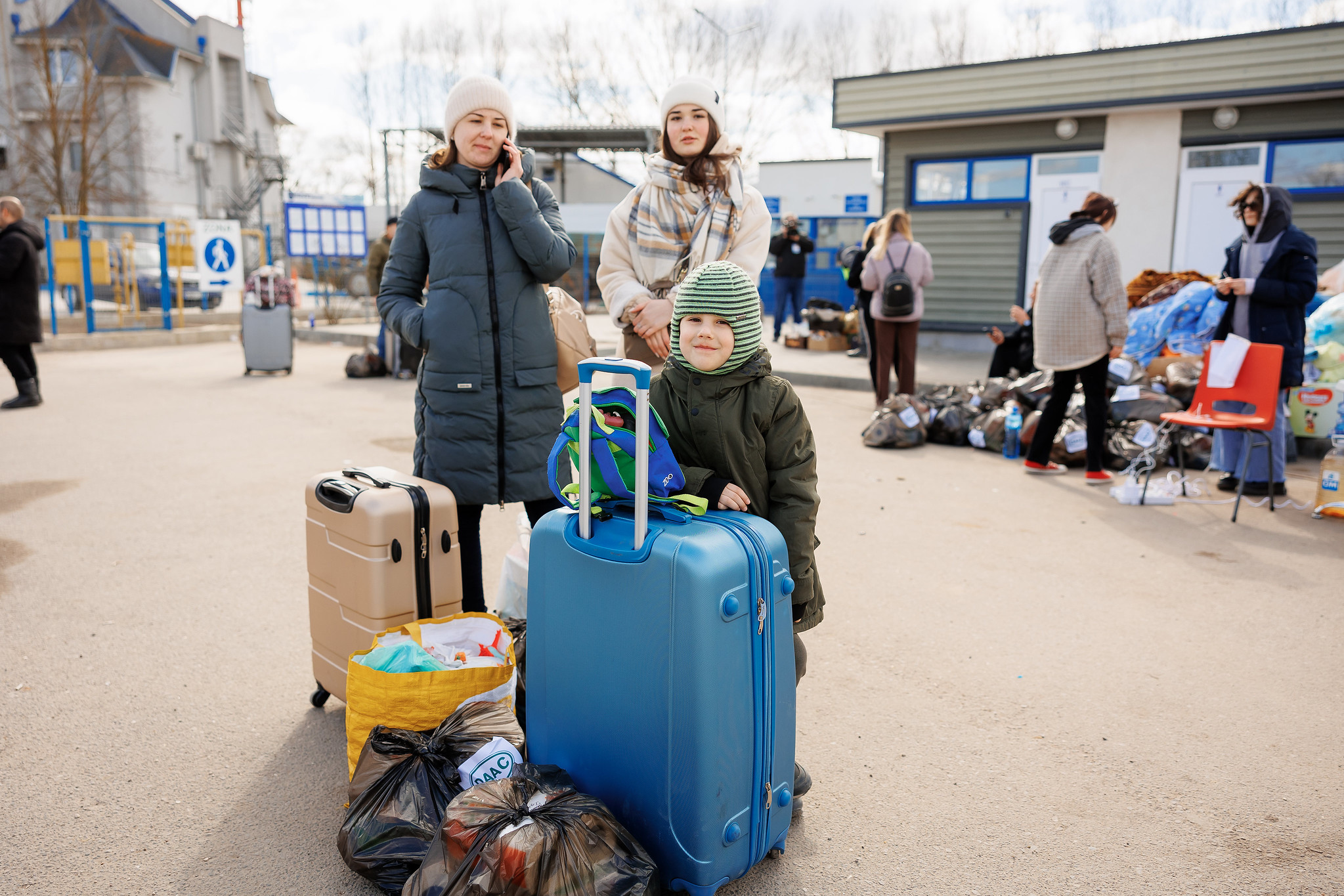[Closed] Promotion of human security of Ukrainian refugees, third-country nationals, and the host communities in Moldova through socio-economic empowerment and inclusion
| Status: | Closed |
| Duration: | 2023 – 2024 |
| Budget: | US$1,645,305 ($1,149,214 managed by UNDP) |
| Donor: | Government of Japan through the United Nations Trust Fund for Human Security |
| Coverage: | Republic of Moldova |
| Beneficiaries: | Refugees and host communities’ members, third-country nationals, local public authorities |
| Focus Area: | Effective Governance, Justice & Human Rights |
| Partners: | Ministry of Infrastructure and Regional Development, Ministry of Labour and Social Protection, National Employment Agency, UN Agencies, local public authorities, local public institutions, community groups, private sector |
| Project Document: | Promotion of human security of Ukrainian refugees, third-country nationals, and the host communities in Moldova through socio-economic empowerment and inclusion |
| See more information about the project on the transparency portal. | |
Project Summary:
The primary objective of the programme is to enhance the human security of Ukrainian refugees, third country nationals (TCNs) fleeing the war in Ukraine, and their host communities in Moldova. The programme will do so through putting in place resources to address the increasing vulnerabilities and support the social and economic integration of conflict-affected populations (bearing in mind elements such as gender, age, disability, and other diversity characteristics of individuals), as part of a transformative development process in Moldova.
Under this programme, UNDP and IOM will build resilience to the compounded crisis in Moldova, which has been exacerbated by the war in Ukraine, while securing gains from humanitarian assistance to the Ukrainian refugees, TCNs, and host communities.
Objectives:
Infrastructure and basic services are effectively and adequately provided to the refugees, TCNS, and the host communities, demonstrating “build-forward-better” with green, energy-efficient and digital technologies;
- Refugees, TCNs, returning migrants and host community members, particularly women, older people and persons with disabilities, have access to livelihoods and employment opportunities, including in agriculture and food supply chains, that help them build self-reliance and live with dignity;
- Universal access to protection, including support to survivors of gender-based violence and trafficking in persons, is ensured for the refugees, TCNs, and Moldovan communities, with special attention to women, children, older people, persons with disabilities, and other vulnerable groups;
- Refugees, TCNs, returning Moldovan migrants, and host communities live in an inclusive, non-discriminatory, and peaceful environment where social cohesion, mutual trust and enhanced human security prevail.
Expected results:
- The programme will adopt an area-based programming approach, focusing on at least five communities with a high concentration of refugees and TCNs, and high level of vulnerability with imminent needs across multiple sectors at a large scale;
- Residents in these communities, are estimated to be approximately 1,200 refugees and TCNs and 40,000 host community people in total;
- Local public authorities leading the target communities will benefit from support in upgrading the local public services and enhanced crisis resilience;
- The National Employment Agency and its territorial offices will enhance their capacity to effectively support refugees in need of assistance on their job-seeking journey;
- Private sector representatives will benefit from both capacity building activities and grant/support schemes.
Accomplishments:
- The National Employment Agency (NEA) was supported to organize a job fair for Moldovans, refugees from Ukraine, and third-country nationals job seekers, which was attended by 50 employers and over 2,000 jobseekers and 2 NEA mobile teams are fully equipped to provide outreach services in Criuleni and Dubăsari;
- 17 professionals working in the areas of mental health including with survivors of Gender Based Violence (GBV) and refugees successfully completed a 10-day training on Common Elements Treatment Approach (CETA), while work to set up a shlter in Ungheni dedicated to GBV survivors is ongoing;
- 186 young people from all regions of the Republic of Moldova, including from the Găgăuzia region, from the left bank of the Nistru River, as well as refugees from Ukraine, attended the summer camp "#YOUthAct - Youth for Justice" in July-August 2023 and gained knowledge about human rights and the justice system in Moldova;
- 365 local, diaspora and refugee children and youth participated in the #AcasăCamp2023 summer camps, organised in 15 communities by local hometown associations in July-August 2023 where they discovered together the traditions and potential of these localities for greater social cohesion. The national forum “Social cohesion at home” was organized in October 2023 where 60 hometown associations gathered together and shared accomplishments and challenges encountered in 2023 and plans for 2024.
| Years | Budget | Delivery |
| Government of Japan through the United Nations Trust Fund for Human Security | ||
| 2023 | $1,149,214.33 | $574,601.21 |
| 2024 | $574,613.12 | $478,090.62 |

 Locations
Locations